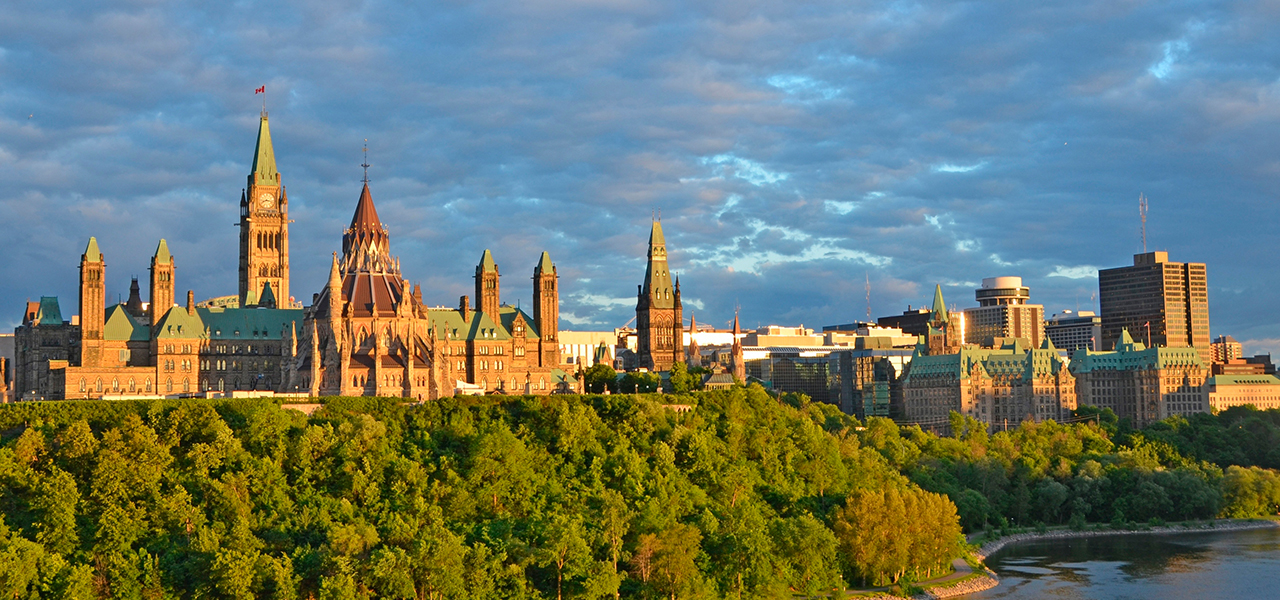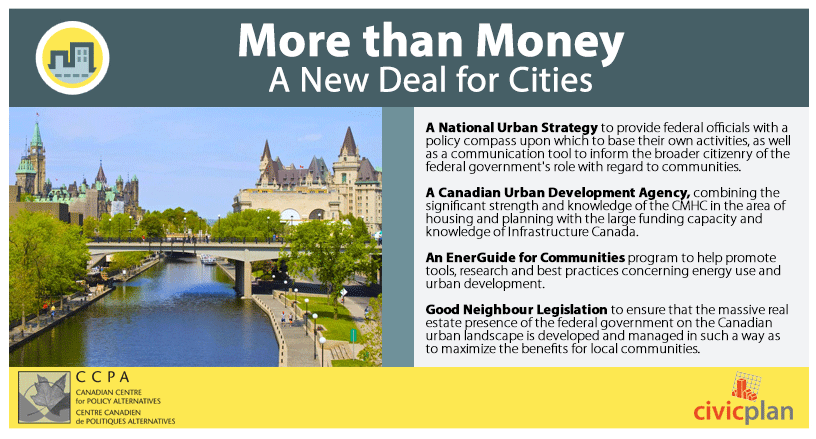More than Money: Revisiting the New Deal for Cities
Almost 15 years ago, former Finance Minister Paul Martin addressed the Federation of Canadian Municipalities (FCM) conference in Hamilton, Canada and proclaimed the need for a “New Deal for Cities” where better federal-municipal relationships would forge a stronger urban Canada. Jack Layton, then president of the FCM, looked on enthusiastically, as he had pushed for a higher profile urban agenda since he took on the top job at the FCM.
There was some progress on the municipal file when Martin briefly became Prime Minister and Layton took the reins of the federal New Democratic Party. A department of Infrastructure was created and financial tools like the Gas Tax were shared with cities. Federal departments started talking directly with local municipalities to share their plans and priorities. For once, cities, the poor cousins of Canadian confederation, were gaining the respect that was commensurate with their contribution to the prosperity of the country. However, progress was fleeting as there was a change in the federal government. The Harper Conservatives clearly believed that, aside from short-term stimulus spending, no long-term solution for cities was needed. With the Trudeau Liberals now in power, we appear to see more or less a continuation of the basic Harper approach, with the addition of some controversial proposals such as a national infrastructure bank.
While the government in power has changed, the fundamentals of the problem have not. Almost 80 percent of Canada’s population lives in cities, yet they have no official standing nationally, being creatures of provincial legislatures for what is essentially the purpose of carrying out the local administration of services. Revenue-generating tools for most cities are confined to property taxes, which do not come close to paying for the renewal of infrastructure and maintenance of services that are delivered by City Hall.
However, while this issue isn’t new, money is only one part of the problem. The 2004 report More than Money: The New Deal for Cities and a Federal Urban Lens by Civicplan Principal Paul Shaker, provided an overview of federal involvement in urban development from its inception as a “nation-building” exercise. The report, commissioned by the Canadian Centre for Policy Alternatives, explained that while the contemporary federal government role is not as robust as it was in earlier decades, there remains a significant level of federal involvement in community development and sustainability, ensuring that the basic foundation is in place to significantly advance federal involvement in urban matters. Furthermore, the reorientation and expansion of initiatives already in place would lead to a more coherent approach by the federal government in dealing substantively with urban issues.
The report makes a number of recommendations to the federal government in order to help establish an “urban lens” for relevant federal program and policy activities. These proposals, still relevant today, include:
- A National Urban Strategy to provide federal officials with a policy compass upon which to base their own activities, as well as a communication tool to inform the broader citizenry of the federal government’s role with regard to the communities in which they live;
- A Canadian Urban Development Agency, combining the significant strength and knowledge of the CMHC in the area of housing and planning with the large funding capacity and growing knowledge of Infrastructure Canada;
- Implementing a federal EnerGuide for Communities program to help promote tools, research and best practices concerning energy use and urban development; and
- Adopting Good Neighbour Legislation to ensure that the massive real property presence of the federal government on the Canadian urban landscape is developed and managed in such a way as to maximize the benefits for local communities.
Reorienting existing federal policy and program capacity is both an opportunity and necessity if the Government of Canada is to be a successful partner in helping to solve the major urban issues of the day. The diverse needs, objectives, and politics of all governments, at all levels, demand national leadership on basic issues of urban development, particularly when there are such clear national implications.
For more information on the report, click here: More than Money: The New Deal for Cities and a Federal Urban Lens


